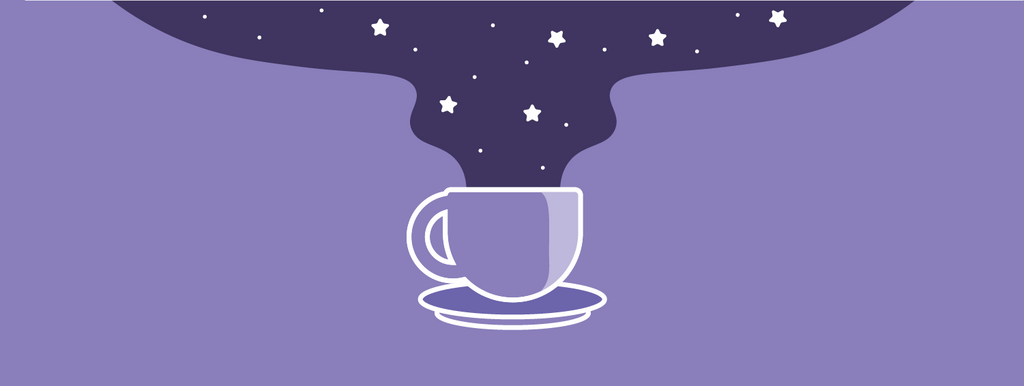Sleeping pills aren't the answer to everyone's sleep problems. They may be sufficient for those who suffer from chronic or severe sleep issues. But the lasting side effects and risk of growing a dependence on medication doesn't always make it the first- or best- option to consider.
While there are many kinds of sleep aids available, finding the best solution that matches your lifestyle is worth investing in.
Here are our top five sleep aid choices that we’ve found to be both efficient and easy to incorporate into a healthy lifestyle.

1. Melatonin
This naturally occurring hormone is produced in your brain’s pineal gland and regulates your sleep-wake cycle. During the day, melatonin production is suppressed, while it peaks in the evenings and onsets your sleep cycle.
Melatonin supplements are a popular, drug-free sleep air option that’s used by many because of its wide availability, safety, and easy use. Studies have found it to be an effective agent to optimize sleep and improve sleep quality.
Melatonin plays other important roles, including regulating your circadian rhythm in your body. Various studies have looked into the positive therapeutic benefits of melatonin, such as for blood pressure, liver health, and even for anti-aging,
Melatonin supplements are common and there are hundreds of varieties you can browse, ranging from oral supplements, diffusers, lotions, and even nasal spray options.
Melatonin supplements are safe for most healthy adults, but it’s still recommended to start with the lowest dosage first before you adjust to a higher dosage. Melatonin might be taken by children and older people, but it’s not advised to do so unless you speak with your physician.

2. Weighted blankets
Weighted blankets are aptly named; they're heavy blankets that are weighed down and put pressure over points on your body while you sleep.
The sensation is intended to have similar benefits as deep pressure stimulation therapy, in which the nervous system relaxes and induces feelings of calm and lessened anxiety, which might help people sleep.
Studies have looked into using weighted blankets for sleep, where the results show some general improvement in sleep quality. While weighted blankets are typically safe and come in various sizes depending on body size and weight, it’s cautioned against people who might be claustrophobic or have respiratory, blood pressure, or circulatory conditions.
Weighted blankets are a slightly expensive option, but can be used for a very long time.
Weighted blankets come in many styles, such as this chunky knitted weighted blanket by Gravity, and even cooling blankets by Luxome.

3. Chamomile
Chamomile is a flower that's been used for thousands of years in teas and herbal therapies. Using chamomile has been extensively explored for its potential to promote general health and also for its relaxing properties.
A study found that chamomile also improved sleep quality; another study supported this, finding similar results in women who had just given birth. Research is continuing to support this, in addition to trying to see if chamomile might have a significant therapeutic impact on anxiety and insomnia.
Chamomile doesn't have any caffeine and can be taken as a hot tea before bedtime. Other people use chamomile in essential oils and for aromatherapy, which might have a relaxing effect before bedtime. There are also chamomile capsules that can be consumed as supplements.

4. Magnesium
Magnesium has been found to be a potentially helpful sleep aid. Although it can be taken as a supplement, magnesium can be found naturally in foods like pumpkin seeds, almonds, spinach, chard, fish, and more.
Low levels of magnesium have been correlated to poor sleep quality, and supplementing magnesium has been found to have potential benefits to treating insomnia. In addition, magnesium helped improve sleep when used alongside melatonin and zinc.
Other vitamins for better sleep can be found here.

5. Healthy sleep hygiene
You can’t buy this one, but it might be the easiest to try first. Rather than pills or special brews, sometimes it's good to go back to the basics of getting good sleep.
Not only will practicing good sleep habits help you fall asleep and stay asleep, it will make it easier for you to find out what works and what doesn’t.
Some of our best sleep hygiene tips are:
- Keep your room dark and cool; this study found that people woke up more often when exposed to heat than cold.
- Be in a quiet environment. You might also invest in noise-canceling headphones or earplugs if your environment is naturally loud due to traffic or roommates.
- Don’t use your phone before bed. Blue light exposure tricks your brain into suppressing your body’s melatonin production, making it more difficult to fall asleep. Limit your digital screen exposure as much as possible before bedtime.
- Limit caffeine and other stimulants before bed. Also don’t drink alcohol, as that makes it harder to get restful sleep.
- Do light exercise thirty minutes before bed. If you have extra trouble falling asleep, light exercise can help
Finding the best sleep aid for you
Choosing the best sleep aid for you depends on your lifestyle and your personal needs. Those who have conditions like anxiety might require different methods to someone who doesn’t. For the long-term benefit of getting better sleep, it's well worth finding out what alternative sleep aid works for you.
